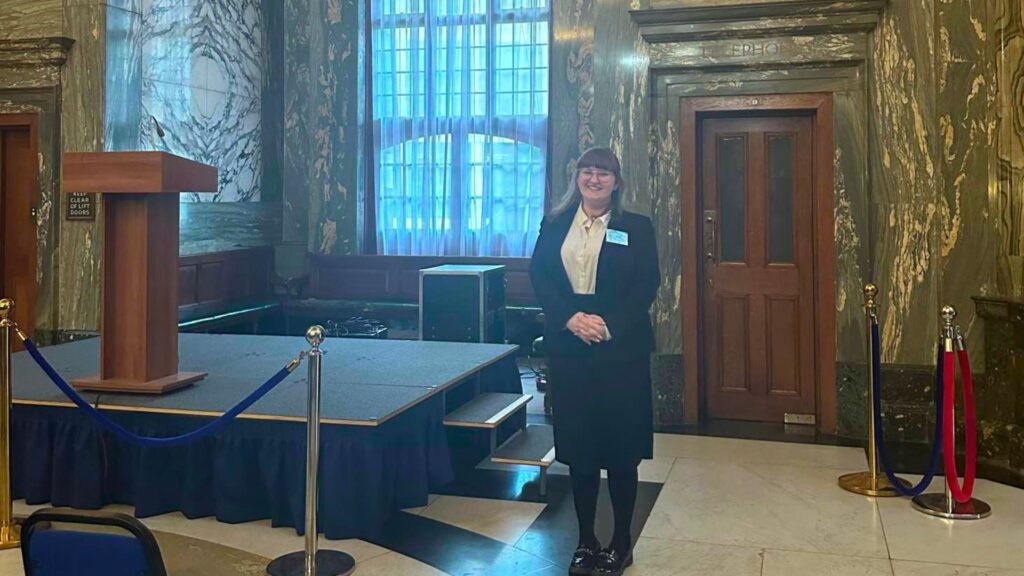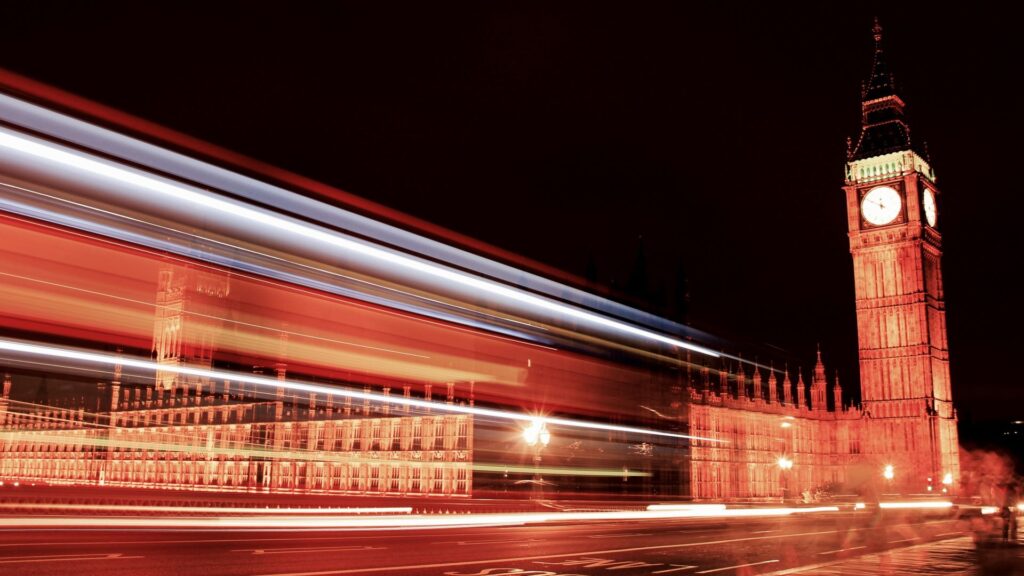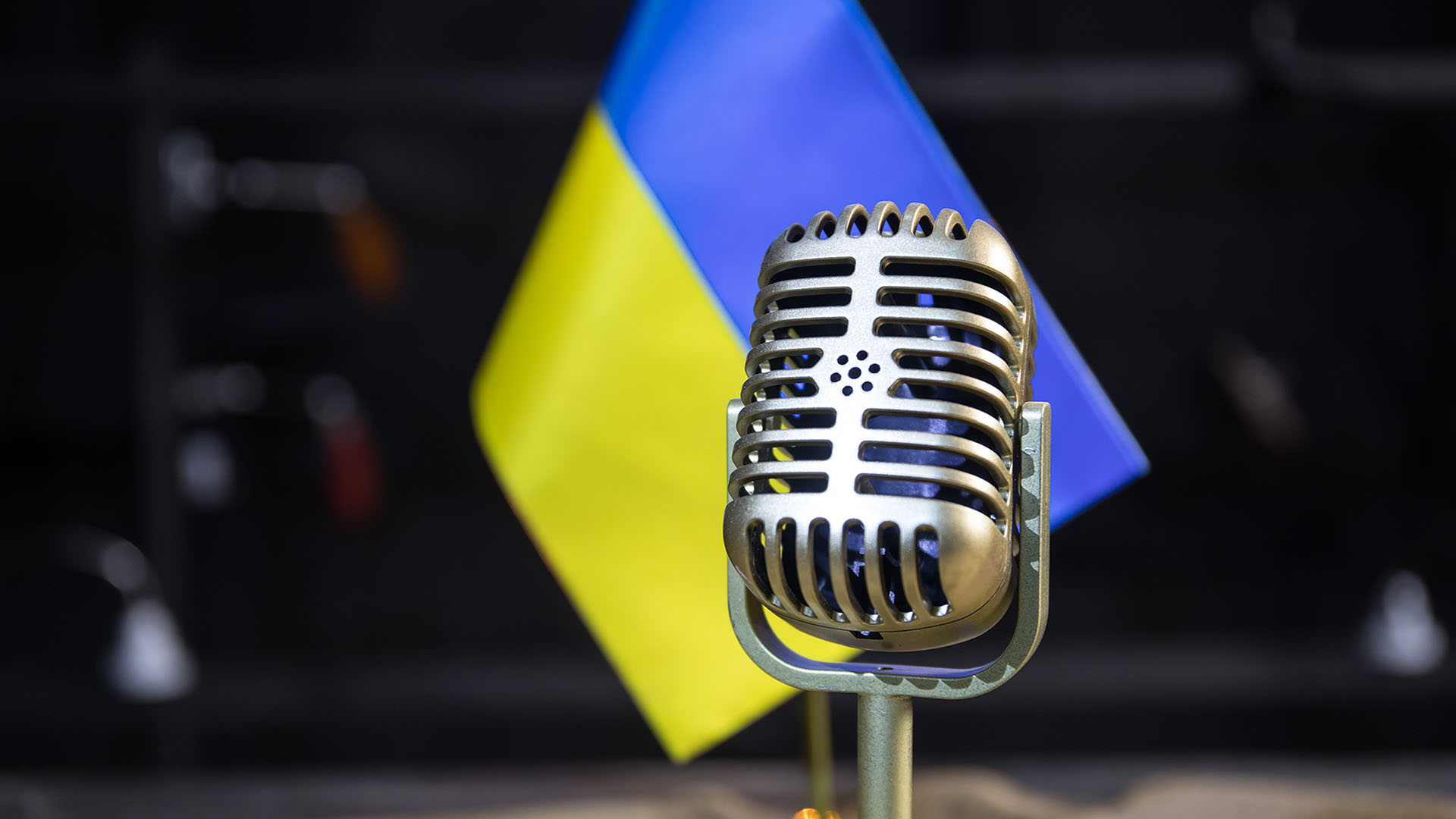
The 2022 Eurovision Song Contest final was emotional. Well, even more emotional than usual.
Against a backdrop of the Russian invasion of Ukraine, there was only ever really going to be one winner: Stefania, performed by Ukraine’s Kalush Orchestra brought Sam Ryder’s Spaceman back down to Earth, the UK’s entry coming a very creditable second.

“It was inevitable that Ukraine would win, gifted to the Ukraine by the public vote that was an overwhelming act of solidarity through song (and maybe a little bit of sympathy),” says Phil Jackson, Associate Head of English Creative Arts at Edge Hill University, Eurofan, commentator, and big fan of Bucks Fizz.
“The UK achieved the unexpected by finishing in second place – no one saw that coming! Kudos to Sam Ryder for delivering a fantastic performance.
“It feels like we’ve won something even more special, though – the honour of hosting for Ukraine this year. I commented last May that the country that finished second to Ukraine would always think ‘what if’. Well, now we know!”
But the UK did deliver the largest tv audience, pipping Germany for the first time in 11 years. In the UK 8.9 million viewers watched the Grand Final, from a viewing audience that topped 161 million. And that doesn’t include record numbers engaging on social media. The Eurovision Song Contest (ESC) is a global institution these days. Ordinarily the winning nation hosts the following year’s contest. The war turned to dust Ukraine’s hopes of doing that. As the second placed nation, the UK quickly provided a venue for 2023, with Liverpool earmarked as this year’s destination hosting on behalf of Ukraine.
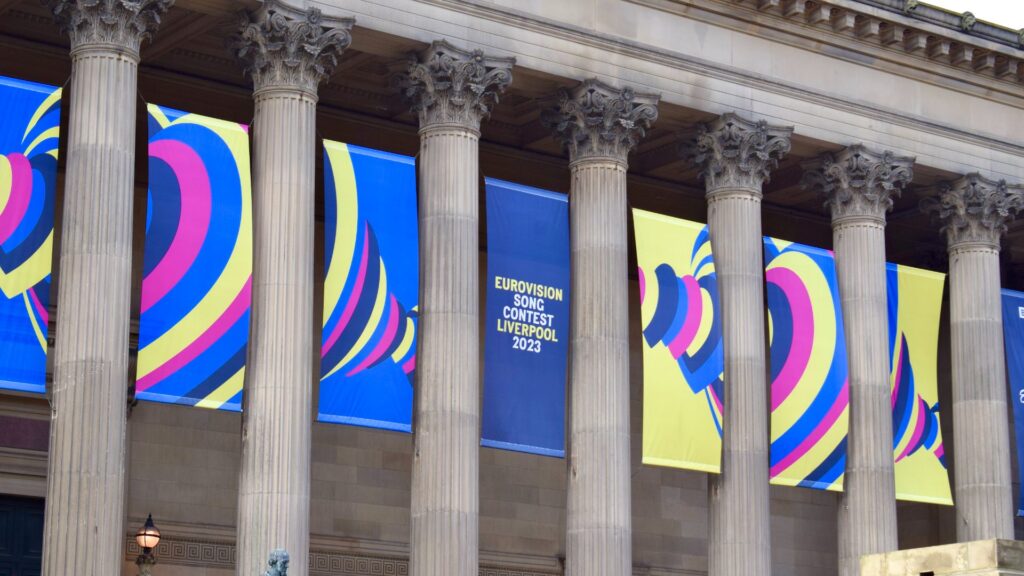
And the return to the UK signals a reinvigorated Phil Jackson, back in the Eurovision bubble. Phil has written extensively on the ESC, and been a go-to expert for the BBC, attending eight Contests, in the host countries, between 2008 and 2016. And after a short hiatus he’s back, back, back – and blogging about his renewed appetite for this very European musical souffle:
“This year we have a home Eurovision. Working in Ormskirk, Liverpool’s Eurovision is on my doorstep, so I need to get involved. I’ll was in the arena for the Monday and will be at the Wednesday night previews of the semi-finals, so I’ll be able to share that experience with you, as well as my take on the songs participating this year.”
Phil has researched and commented on Eurovision many times during his academic career. His research has delved far below the surface of the ESC: the importance of the Eurovision as a media event culturally, politically, socially and musically; Eurovision ‘eurofans’ activities and behaviours; the branding of the Contest and what this signifies about its values; when politics and pop collide at the Eurovision; what makes a winning song; and the Eurovision Song Contest as a Continuum for Cosmopolitanism.
Check out Phil’s run down of Liverpool 2023’s runners and riders (with a little help from some North West friends), in this video created for National World:
Not everyone’s as knowledgeable as Phil, though, and Euro-virgins may need a little help to get up to speed with what is now a fixture in the student social calendar. So, with Phil’s help, we’ve cobbled together a Eurovision crib sheet, to get you up to speed, and help you enjoy this very European affair just a little bit more (as Gina G might have said – see 2 points).
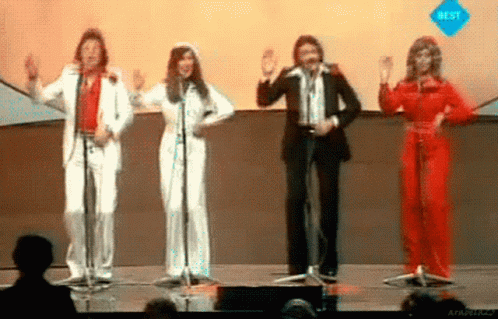
12 points
The UK are the third most successful nation with five wins. The UK has also finished second 16 times – “quite a feat!”, says Phil. “And no country has hosted more times than the UK – nine times including this year.” Ireland are the big Eurowinners with seven, Sweden a close second with six wins, while France, the Netherlands, and the mighty Luxembourg join the UK on five. Our winning ditties: Sandie Shaw with Puppet on a String (1967), Lulu with Boom Bang-a-Bang (1969), Brotherhood of Man (left) with Save Your Kisses for Me (1976), and Bucks Fizz with Making Your Mind Up (1981). Katrina and the Waves were the last UK entry to hold the crown, with Love, Shine a Light way back in 1997.
10 points
Phil faves Bucks Fizz were created especially for the selection contest A Song for Europe. Following their win in 1981, they had 13 UK top 40 hits over the next five years. Singer Cheryl Baker already had ESC history, coming in 11th in 1978 as part of CoCo.
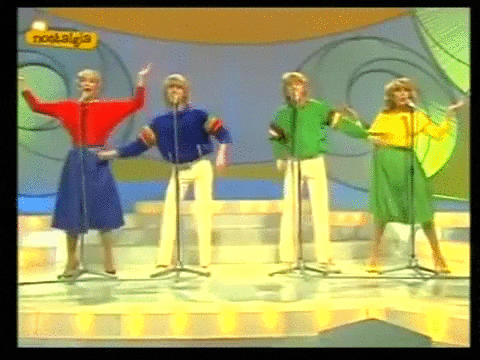
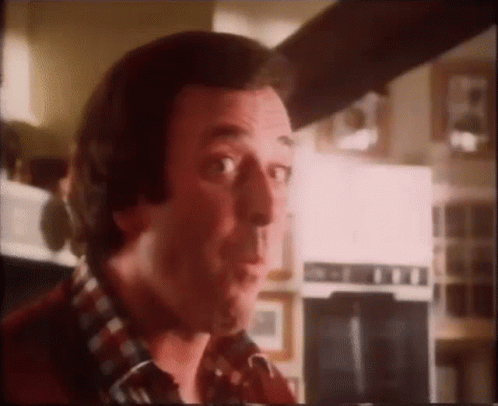
8 points
The late Terry Wogan (left) was the voice of Eurovision for many in the UK. He first lent his dulcet tones to the BBC’s Eurovision coverage in 1974, before taking up residence in the commentary hotseat from 1980 to 2008. There’s only so many ways you can gently poke fun at Albania’s latest entry, though, and in 2009 he passed the baton on to Graham Norton. He’ll be joined in Liverpool by actress and comedian Mel Giedroyc.
7 points
Some big names have come a cropper on the Eurovision stage: Olivia Newton-John (1974, fourth), The Shadows (1975, second), Eastenders’ Samantha Janus (now Womack) (1991, 10th), Michael Ball (1992, second), Sonia (1993, second), Blue (2011, 11th), Engelbert Humperdinck (2012, 25th), and Bonnie Tyler (2013, 19th). Cliff Richard (right) has appeared twice: he came second in 1968, although he had the consolation of topping the UK charts with his entry Congratulations, while in 1973 Power To All Our Friends came third. Maybe one day, Cliff. And let’s not forget that this year the Irish voters chose beauty over age, rejecting the 67-year-old anti-establishment punk icon Johnny Rotten in favour of Wild Youth, a four-piece from Dublin.
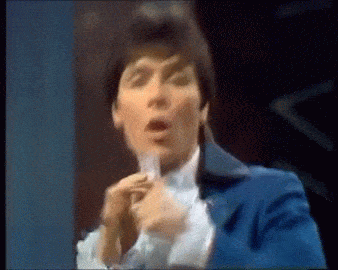
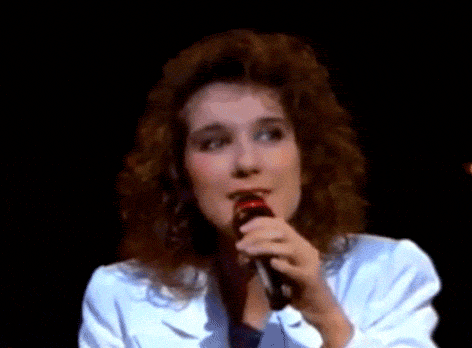
6 points
The first contest took place in Lugano, Switzerland in 1956, and was won by the host nation. Canadian chanteuse Celine Dion launched her career when she won in 1988, representing Switzerland, beating the UK’s Scott Fitzgerald by 1 point. We wuz robbed. Probably.
5 points
Celine Dion went on to global superstardom, of course, but she didn’t get close to the post-Eurovision success of ABBA, whose Waterloo, winner in 1974, was voted the most popular Eurovision song of all-time. Abba have gone on to sell millions of records worldwide, and had nine UK no1 singles. In 2022 they released Voyage, their first album in 40 years.

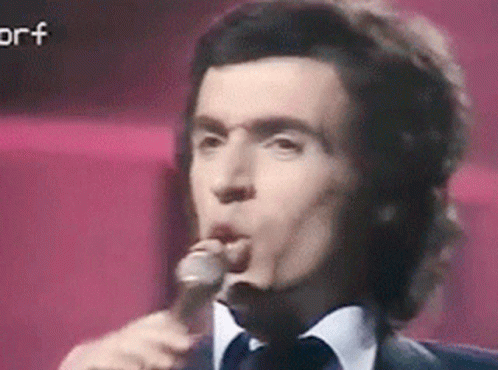
4 points
1974 was a big year for Eurovision. The performance of the Portuguese entry Paulo de Carvalho was the signal to army officers to launch the Carnation Revolution, which ultimately ended the dictatorial rule of Marcello Caetano, and The Wombles made an appearance. Disappointingly, rather than representing the UK, they were merely the half-time entertainment. ABBA no doubt breathed a sigh of relief.
3 points
In 1998, Israel’s Dana International won with Diva. The contest’s first transgender winner pipped the UK’s Imaani to the title. Incidentally, this was the last contest to feature a live orchestra. Since then all artists have sung to a pre-recorded backing track. The Eurovision community has long championed a tolerant, equal and inclusive society, and in 2014 the self-titled ‘bearded lady’, openly gay drag artist Conchita Wurst landed the title for Austria with Rise Like A Phoenix.
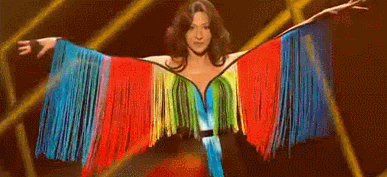
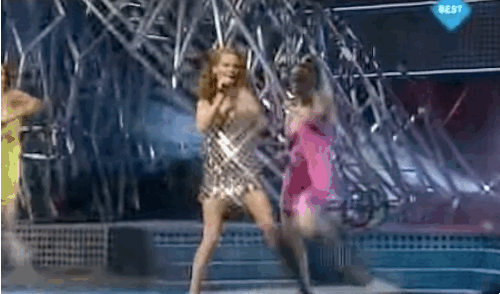
2 points
Despite only finishing eighth in the 1996 contest, Gina G had huge success with her entry Ooh Ah Just a Little Bit, becoming only the second non-winning UK entry to top the UK singles chart (after the aforementioned Cliff). It also reached the US top 20, receiving a Grammy nomination in the process.
1 point
Eurovision is enjoyed in many ways, and has long been a student favourite, for many reasons. One may be that it makes cracking drinking game material. Pick a country, set out your conditions – such as taking a gulp each time the singer winks at camera, drops to their knees, or makes a peace sign – and get the party started. Obviously you drain your glass if your country wins. Make up your own conditions, but remember, it’s just a bit of fun, so always drink sensibly.
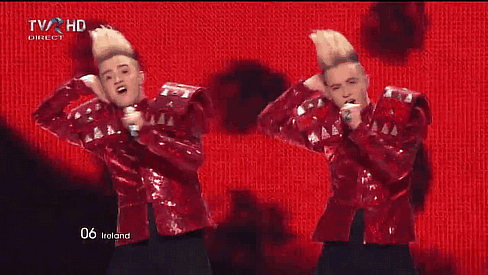
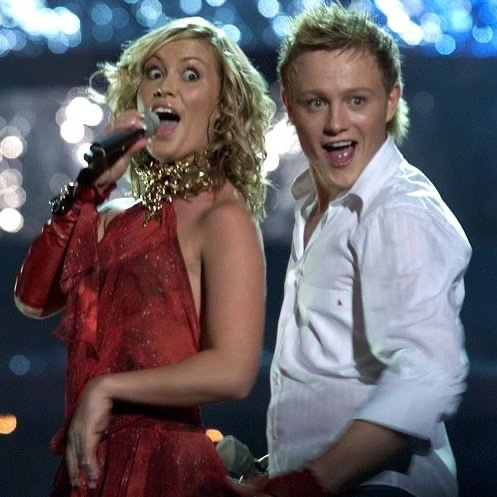
And finally…nul points
In his book Nul Points, writer Tim Moore interviewed twelve performers who failed to trouble the scorers, to find out if their Eurovision score was the end, or just the beginning, of their music career. In 2003, the UK’s entry Jemini (left) was on the receiving end of the dreaded ‘nul points’ after a woefully out-of-tune performance (due, they said, to a faulty backing track), the first time the UK had finished bottom of the leaderboard. It was the end of their career. Coming last soon became a bit of a habit, though, with Andy Abraham in 2008 and Josh Dubovie in 2010 both enduring this ignominious fate. And in 2021, James Newman joined Jemini in the ‘Nul points’ club when Embers failed to set the world alight. But spare a thought for Norway, though, who have trailed in last a record 11 times (four of them making it into that unfortunate club).
Now you’re (boom bang a) bang up to date, and ready to mix it with the biggest Eurovision fans, while rooting for UK entry ‘I Wrote A Song’ by Mae Muller. Or whoever you’ve got in the sweep, anyway (see 1 point).
Удачі.
Check out our range of creative arts degrees
May 5, 2023

